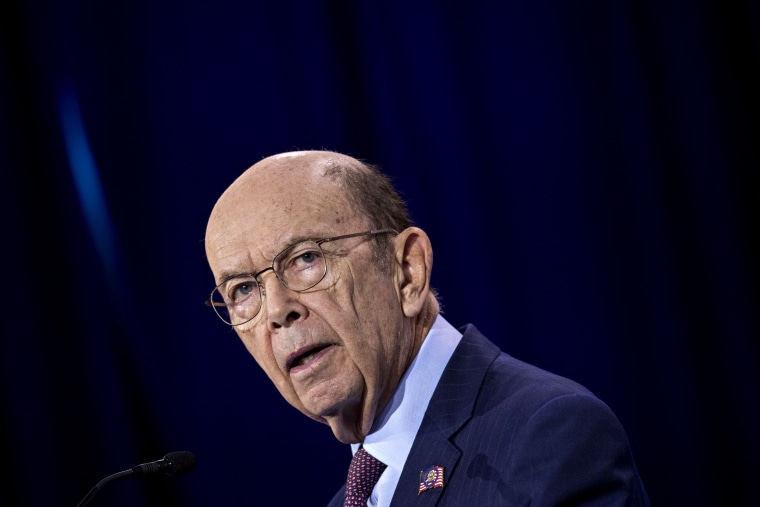Today, the Supreme Court offered a strong rebuke of the Trump administration. For now, the decennial census will not include a question about citizenship status. There may still be a slim chance that the question appears on the 2020 census, but that possibility is quickly fading as the census questionnaire must be printed soon — although President Donald Trump has since floated the idea of postponing the census until he gets the decision he wants. (There is also some disagreement about whether the questionnaires need to be printed now or in October.)
Regardless of some of the logistical details, the court’s decision is a setback for Trump and his administration, which has long pushed for the inclusion of the question. Chief Justice John Roberts, joined by the liberal justices on the court, authored the fractured majority opinion, in which he concluded that the Trump administration had not offered an adequate explanation for wanting to add the citizenship question to the census. The court sent the case back down to the federal trial court to consider evidence calling into question the Trump administration’s alleged reason — enforcing the Voting Rights Act — for including the question. This means the Commerce Department will still have a chance to explain itself.
Chief Justice John Roberts, joined by the liberal justices on the court, authored the fractured majority opinion, in which he concluded that the Trump administration had not offered an adequate explanation.
Regardless, Roberts, along with the four liberal members of the court, told us something important today. They told us that at least some federal laws still matter. They told us that a federal agency can’t just conjure up a reason, any reason, even a reason that strains common sense, for its actions, and claim it therefore has the authority for those actions.
The political stakes of this case are huge. And to understand why, let’s start at the beginning. The Enumeration Clause of the Constitution dictates that Congress must count how many people live in our country every 10 years. The number of residents in each state dictates the number of members of Congress and electors for the Electoral College each state is allocated. It also helps to determine the amount of federal funds a state will receive. People (representatives and electors) and money are the two most vital things states can receive from the federal government, and the census determines them both.
Congress delegated its responsibility to conduct the census to what is now the Commerce Department. The Commerce Department, being a federal agency, has broad authority to carry out its duties. This means that commerce secretaries can largely decide how they want to accomplish their responsibility of conducting the census.
But here is the key legal issue in the case — just because federal agencies have broad authority, that does not mean they have unchecked authority. This is where the Federal Administrative Procedures Act (FAPA) comes in. FAPA provides that federal agencies cannot act in a way that is “arbitrary, capricious, an abuse of discretion, or otherwise not in accordance with law.”
And this is where the Trump administration ran into a significant roadblock at the Supreme Court today. Commerce Secretary Wilbur Ross claimed that members of the Justice Department told him citizenship information would be helpful for enforcing the federal Voting Rights Act and that was his sole reason for wanting to ask the citizenship question. This is, to use a legal term, bogus. Evidence indicates Ross wanted to include the question long before we heard a peep from the Justice Department, and that in fact that rationale was fabricated.
On Thursday, the court didn’t go so far as to call Ross a liar, but they recognized that there were significant problems with his alleged justification. Indeed, a majority of the Supreme Court understood that FAPA tasks the court with real oversight authority. Roberts wrote, “[a]ccepting contrived reasons would defeat the purpose of the enterprise. If judicial review is to be more than an empty ritual, it must demand something better than the explanation offered for the action taken in this case.”
Evidence available at trial and newly discovered evidence indicated that Ross actually wanted the information to help “Republicans and non-Hispanic whites.” Adding a citizenship question to the census could help Republicans because the people most likely to fail to return the census form are Democrats or live in Democratic areas. These people disproportionately live in immigrant-heavy areas and worry about the consequences of reporting their citizenship information to the federal government.
The Supreme Court’s decision comes on the heels of three federal trial court judges who reviewed the citizenship question. They all found that Ross acted in a manner that is arbitrary and capricious, in violation of FAPA. The judges concluded that Ross’ explanation of needing citizenship information to enforce the voting rights act was implausible. Each judge also found that Ross’ decision would lead to a gross undercounting of residents.
The Census Bureau’s own research found that the addition of the citizenship question would lead to a significant undercounting of people living in our country. In fact, a new study from the Census Bureau, published after oral arguments in the Supreme Court, indicated that more than 8 million people would fail to return the census form if it included the question. Six former directors of the Census Bureau (who served under both Democratic and Republican presidents) all said that adding the citizenship question could lead to an inaccurate count.
And that is why it is so galling that Ross, who is in charge of counting all of the residents of our country, wanted to add a question which will actually lead to an inaccurate count. The bottom line is that Thursday’s decision is not the final word on the census saga. But it is a good day for those who care about the rule of law.


